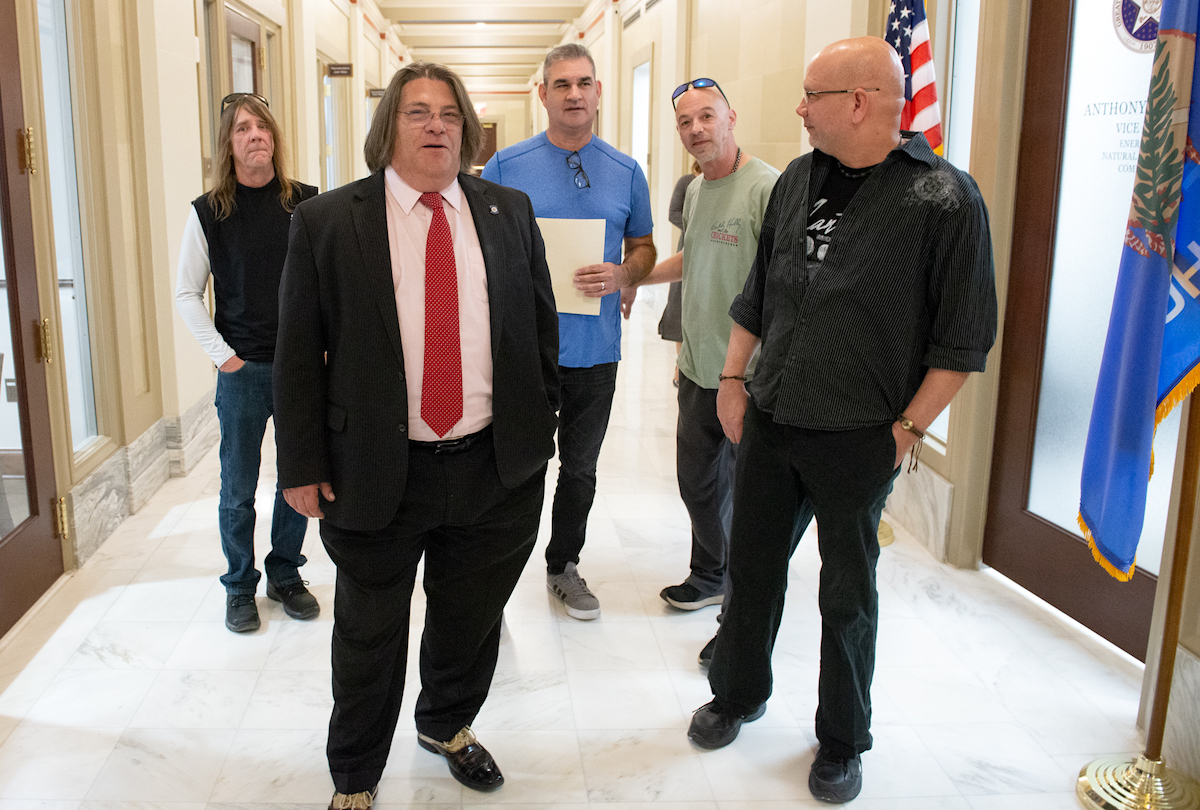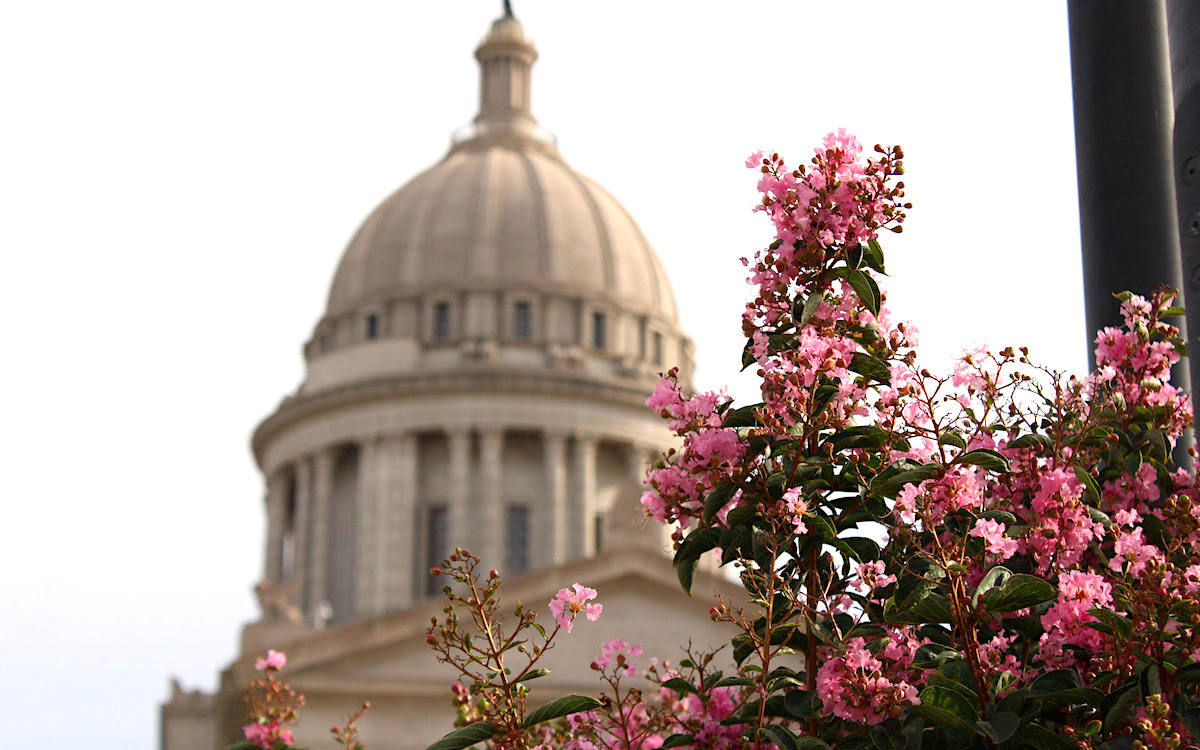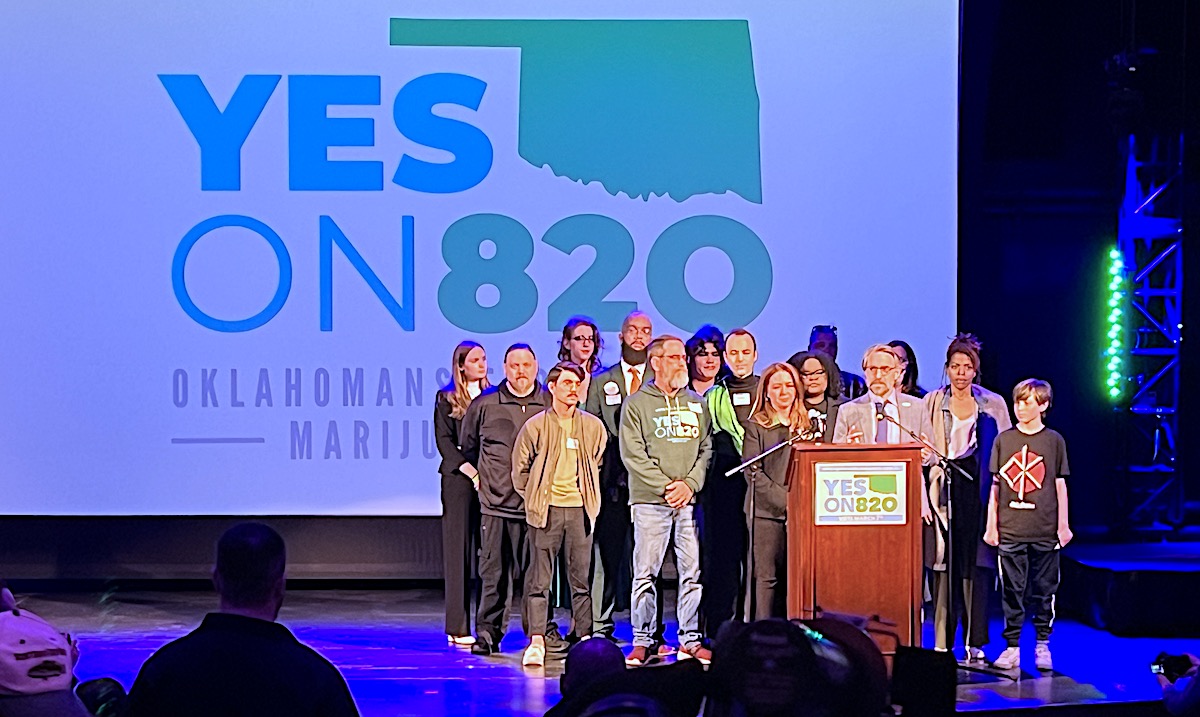
State Question 820’s defeat last month ended Oklahoma’s conversation about adult recreational cannabis use for now, but how it impacts the existing medical marijuana program remains to be seen as legislators amend, debate and vote on bills regarding industry operations and law enforcement during the final weeks of the 2023 legislative session.
Those who want to rein in the program, now entering its fifth year, have plenty of political cover after voters overwhelmingly rejected SQ 820. Gov. Kevin Stitt weighed in days after the vote, suggesting the current medical marijuana program is too easily accessible and maybe that should change.
“Oklahomans have a big heart that if it’s going to help someone medically, we want that to happen,” Stitt said March 10. “But we don’t believe everyone with a hangnail should be able to get a medical card.”
Medical cannabis bills moving forward in 2023 session

Stitt’s March remarks came as SB 440 by Sen. Jessica Garvin (R-Duncan) was facing its full Senate hearing. At the time, the bill proposed potency caps on marijuana products, but Garvin amended the bill March 23 to drop the potency cap component in favor of purchasing limits on some products.
“I think we’ve really had recreational marijuana since the inception of the program,” Garvin said. “Because I’m in the health industry, I have a little bit different perspective. I see how patients have benefitted from it, but I think we also have a problem when it comes to children and their ability to access it and the black market. My idea with the bill wasn’t to hurt the patient experience, it was to make it safer for everyone by finding a happy compromise. I think that’s something as legislators we will continue to work on.”
SB 440 advanced from the House Alcohol, Tobacco and Controlled Substances Committee last week and is eligible to be heard on the House floor. However, the bill’s title has been struck, which is a procedural move lawmakers use on controversial proposals to make sure a bill’s final language is heard second time in its chamber of origin.
Garvin has also introduced SB 439 which would require that all Oklahomans who receive patient licenses do so with the recommendation of a doctor who is located within Oklahoma. The bill also proposed modifying rules governing patient licenses for those under age 18.
Garvin said her primary aim with any legislation is to protect minors and those operating legally within the system.
“We have a responsibility to everyone in the state to make sure that we have a program that is safe for everyone,” Garvin said. “I think it’s been sort of a free rein. There’s no difference between what a minor with a patient license has access to and what an adult with a patient license has access to. I think that’s a problem.”
Garvin’s SB 439, however, did not receive a House committee hearing by last week’s deadline. The bill remains property of the House and could be considered further next legislative session.
‘Honk if you’re high’

Rep. Scott Fetgatter (R-Okmulgee) has been one of the leading legislators in the Oklahoma House focused on marijuana matters. He saw SQ 820’s failure as an example of voters being asked to approve too much too soon, and he said many of his constituents feel a lot of fatigue over marijuana right now.
“I wasn’t shocked by the vote,” he said. “I think it was a combination of things that got us where we are. Obviously, it failed miserably in rural Oklahoma, with 70 to 80 percent of those voters being against it. When you talk to them, they’re worried about organized crime. They see how marijuana has changed the face of Main Street with the flags and the signs. There’s a dispensary billboard on Highway 75 in my district that says ‘Honk if you’re high.’ I think people are tired of all of that.”
While some of Garvin’s medical cannabis bills are aimed at influencing the patient experience, Fetgatter said he does not see that as a priority.
“I’m sure there have been and will continue to be a lot of conversations about qualifying conditions for patients,” Fetgatter said. “I don’t think that type of legislation would go far right now. I think instead of worrying about people who are buying marijuana legally through a dispensary, we should be more worried about the black market and how we can make a dent in that problem.”
To that end, none of Fetgatter’s current medical cannabis bills focus on patient experiences, and Garvin is Fetgatter’s Senate author on HB 1350, HB 1349 and HB 1347.
HB 1350 would create temporary licensing programs for marijuana dispensaries, marijuana grow operations and processors. That bill is on the Senate calendar and is available for consideration of the floor. Because its title and enacting clauses have not been stricken, passage from the Senate floor would send the bill to the governor’s desk.
Two other bills by Fetgatter are in different shape. HB 1349 would create a nine-member rule-making board for the Oklahoma Medical Marijuana Authority. The nine members would include law enforcement, a physician and marijuana business owners. But as HB 1349 awaits Senate floor consideration, its title and enacting clause will need to be restored by amendment before it can pass into law.
Another Fetgatter bill, HB 1347 would call for the OMMA to re-open the RFP process for its seed-to-sale tracking system, which tracks marijuana plants from their seed state to finished products that can be purchased by those with patient licenses. The current system has been criticized by some in the industry since its inception, but HB 1347 did receive a Senate committee hearing prior to last week’s deadline.
“I think if the seed-to-sale bill doesn’t make it across the finish line, the state could be sued again,” Fetgatter said earlier in April. “We should be looking at an RFP. That doesn’t mean the current vendor can’t re-apply and try and get a better contract for the state and for businesses across Oklahoma.”
Other medical marijuana bills aimed at law enforcement

Asked about this session’s medical marijuana policy negotiations following the defeat of SQ 820, Senate President Pro Tempore Greg Treat (R-OKC) noted that his caucus has long had concerns about how the state’s existing program laws have been enforced and how organized crime syndicates have reportedly found footholds in Oklahoma’s industry.
But Treat cautioned that SQ 820 did not signal a change of heart regarding medical marijuana access in Oklahoma.
“We want to make sure we don’t misread the tea leaves. Obviously there was a rebuke of the state question, but there are still a lot of license holders, so we’ve got to strike that balance,” Treat said last week. “You don’t want to overreact to a state question going down, but you do see that there is a will to make modification to make the industry safer and more responsive.”
House Majority Floor Leader Jon Echols (R-OKC) largely agreed with Treat and said he supports legislation that targets illegal grow operations.
“For me, the conversation didn’t change with the state question. The bills I’m running with the attorney general I have wanted for the longest time, and I’ve never changed,” Echols said. “I want legal entities to be successful, and I want illegal entities to be shut down. My bills are working with [the Oklahoma Bureau of Narcotics and Dangerous Drugs] and especially with our current attorney general, Gentner Drummond, who ran on putting a stop to these illegal operations, and I’m doing everything in my power to help him deliver on what he’s already been delivering on.”
To that end, Echols filed HB 2095, which involves law enforcement and marijuana businesses. It would allow OBNDD, the Oklahoma State Bureau of Investigation and the Attorney General’s Office to do on-site inspections and investigations in the same way only the OMMA can currently. It would also provide for permanent licensee revocation if a business does not pay its taxes, and it would make it illegal for commercial growers to hire undocumented immigrants. The bill also limits properties to one grow license.
Finally, it also expands the investigative authority into medical marijuana research facilities by allowing law enforcement to enter those facilities for investigative purposes at reasonable times.
Sen. Lonnie Paxton (R-Tuttle) is Echols’ Senate author on SB 2095, which advanced from a Senate committee last week with its title and enacting clause intact. Now, it awaits consideration by the full Senate.
Paxton and Echols have also teamed up on SB 475 to reform due process rights related to business license revocations. SB 475, which would also create a new definition for “straw” buyers or license holders, is awaiting final approval in the House.
“I’ve always supported the mom and pops — trying to help them out,” Paxton said. “But the cartel stuff is what I want to go after — the ones who are moving into rural Oklahoma (and) setting up some kind of armed compound next to our farmers out there.”
Paxton said communities are waiting too long for action on potentially illegal marijuana operations, and even after an enforcement action is taken, the former operations stand empty and deteriorate, with plastic sheeting eventually blowing through farmers’ fields and abandoned greenhouses becoming eyesores.
“So, I went to OBNDD this summer and said, ‘This is the problem I’m seeing. You all are going after these places, and then they are just sitting there,'” Paxton explained. “It seems like the whole process gets bogged down.”
Paxton said SQ 820’s results signaled that voters don’t want to see a wild west show when it comes to marijuana grow operations.
“You look at Kingfisher County where they had a quadruple homicide, that county voted in excess of 80 percent against that measure,” he said. “I think what they’re saying is, ‘Get a grip on this industry.’ They’re not saying, ‘Shut it down.’ I think when people voted for this, I think people said, ‘I voted for a mom and pop, a veteran to have a little grow and a little dispensary,’ not what we ended up with.
“It’s hard to put the genie back in the bottle, and we’re not really trying to, but we are trying to contain everything to where it’s a complimentary business to the state, not something that takes away everywhere they go. You do have these facilities that are nice little facilities, nice little stores. Those compliment communities, but a lot of what we’re seeing with these grows are terrifying to a lot of people.”
Echols: ‘The overall mood of the Capitol has changed’

Echols said the defeat of SQ 820 has caused the Legislature to focus on enforcement bills that target illegal operations. But he also said the overall proliferation of dispensaries and grow operations across the state has been met with disapproval by many.
“My philosophy is always going to be this: Does it help enforcement and help shut down illegal actors while not punishing good actors?” Echols said. “I will say the overall mood of the Capitol has changed. (…) The citizens are rejecting the out-of-control [nature] of the program, and I think people are starting to realize that. So you will see more and more enforcement bills moving forward.”
Owing to legislation passed last year, the OMMA has implemented a moratorium on new business licenses until August 2024, including those for dispensaries, processors and grow operations.
“My clear message is: No one is going to shut down the program,” Echols said. “That’s not going to happen. It was voted on by the people, and it’s going to stay. But there are going to be more restrictions on the program. That is coming. It has just gotten absolutely out of control. We have just under 7,000 (business) licenses, and we probably need 1,000 total.”
Echols said he doesn’t support making it more difficult for Oklahomans to obtain patient licenses, which was something Stitt had suggested might be a good idea.
“I don’t think that attacks the real problem,” Echols said. “Let’s talk about the real problem: people who are growing it and selling it internationally on the black market. People who are human trafficking individuals to come into the state (for labor). I don’t think qualifying conditions and things like that solve the problems I want to fix and the problems Oklahomans want to fix.”
Patient experience likely to be unaffected, for now

Attorney Ryan Kiesel served as an advisor to the SQ 820 campaign, and he lobbies on behalf of marijuana-related clients in Oklahoma, including Metrc, the current seed-to-sale system provider. Kiesel said that, despite comments from the governor and some in the Legislature, what will likely come out of the Capitol this session focuses mostly on regulating the industry.
“We are starting to see these bills shape up over the session,” he said. “They seem to be bending toward public policies that would have benefits for the medical program and would not impact the experience for patients.”
Oklahoma’s medical marijuana program has grown rapidly, with nearly 380,000 patient licenses issued and thousands of businesses popping up across the state. Last year, medical marijuana generated $60.2 million in excise taxes from medical marijuana sales across the state. Since 2018, about $202 million in excise taxes have been received. Those totals do not include sales tax collected by municipalities, do not go to the state.
Kiesel said protecting existing compliant business owners should be among the most important tasks of the Legislature. He worries that those operating lawfully might be harmed by efforts to crack down on the black market.
“We’ve seen Oklahoma become a leader in cannabis innovation, and we did start off with a very open system that allows pretty much anyone with cash in their pocket to start a business,” Kiesel said. “I have always felt like the free market is the best regulator. A lot of those businesses are now struggling because we do have an oversupply of products. That is the other piece of the puzzle that lawmakers need to keep front and center. Every political discussion can’t focus on reigning in the non-compliant businesses. We have to make sure we aren’t burying the businesses that are compliant-minded in regulation to the point where they can’t keep their doors open. I think legal, compliant businesses that are able to succeed are the best check against the illicit market.”
At five years old, the state’s marijuana industry is still in its infancy. Colorado has had its medical program for more than a decade now. California started its medical program in 1996. Kiesel said it takes time for medical programs to sort themselves out, and he said the OMMA continues to beef up its inspections and hire more staff.
“There is a lot going on that isn’t centered on legislative action,” Kiesel said. “(OMMA) director (Adria) Berry is ramping up every day. They have more inspectors in the field, and those inspectors are trained up and know how to identify compliance issues of all kinds, and they’re getting better at it every single day.
“We have to remember the program in Oklahoma is less than five years old at this point. For most of the time the medical program has existed, regulators haven’t had the tools or resources to ensure compliance. I obviously think SQ 820 would have exponentially helped the state’s ability to regulate marijuana, but voters showed up on Election Day and decided that the conversation about recreational will have to wait for another time.”





















